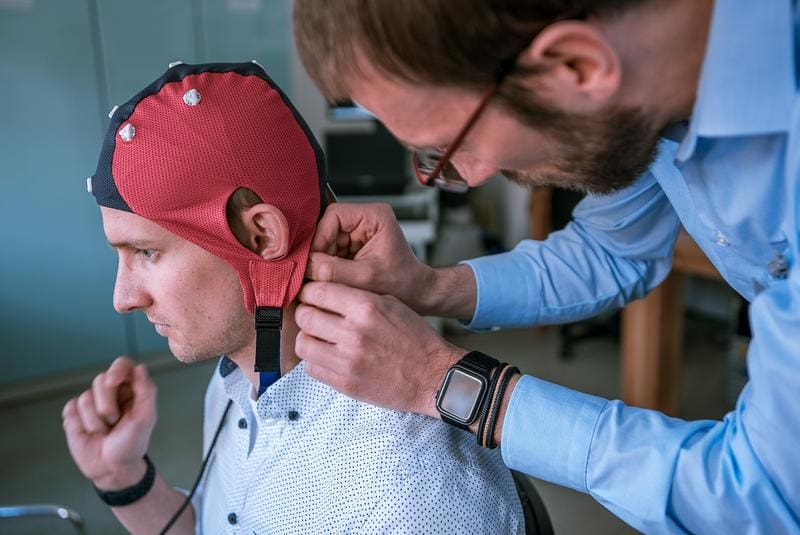TU Ilmenau team wins the INNOspace Masters with brain monitoring system
A research team led by Prof. Patrique Fiedler from the Technical University of Ilmenau has won second place in the international innovation competition INNOspace Masters 2025 of the German Space Agency at the German Aerospace Center. In cooperation with the University of Duisburg-Essen and the Berlin-based medical technology company eemagine, it is developing a system for the continuous measurement of brain activity that is intended to protect astronauts from psychological stress on long space missions. The technology also has the potential to improve the lives of people with brain diseases or depression on Earth.
Extreme conditions such as weightlessness, isolation and high pressure in space travel or on research stations such as in the Antarctic place great demands on the psyche. Incidents such as a suspected cabin fever at an Antarctic station in the spring underline the risks. Ongoing monitoring of brain activity could detect mental crises at an early stage and enable remedy. Similar effects occur during long-term stays in space, where isolation and confinement can impair brain function.
The Ilmenau team is researching this in collaboration with the Universit├® libre de Bruxelles, the McGovern Medical School in Houston, the Complutense Universidad Madrid, the University of Duisburg-Essen and eemagine. The goal: reliable monitoring that detects contamination and initiates countermeasures.
Measurements in space as a major challenge
Developing robust technology for space use requires adaptation to harsh conditions such as vibration and radiation. Prototypes of EEG hoods from Duisburg-Essen were tested in DLR parabolic flights, which simulate weightlessness. Comparable NASA-funded studies were conducted by Complutense Universidad and McGovern Medical School. These tests showed the high requirements, but provided promising results for stable measurements.

Intelligent everyday companion
The team is planning an ultra-light, comfortable headset that is quickly ready for use and provides high-quality EEG data. Integrated artificial intelligence automatically analyzes signals, recognizes mental states and optimizes the quality independently. Based on an existing EEG system with dry electrodes from the TU Ilmenau, which does not require time-consuming preparation and is already used in German clinics, it is to be combined with neurofeedback. This brain training could prevent performance losses and promote recovery directly on site.
Double benefit for space and everyday life
In addition to space travel, terrestrial society benefits: The system is suitable for emotion recognition, brain health monitoring and support for mental illnesses. In the midst of rising cases of burnout and depression, such instruments could have a preventive effect and make it easier to deal with stress. The technology makes mental stress visible and strengthens resilience in extreme situations ŌĆō both in orbit and in daily life.
The articles in the news section are produced by X-Press journalist office
Gender note. The personal designations used in this text always refer equally to female, male and diverse persons. Double/triple references and gendered designations are avoided in favor of better readability.




